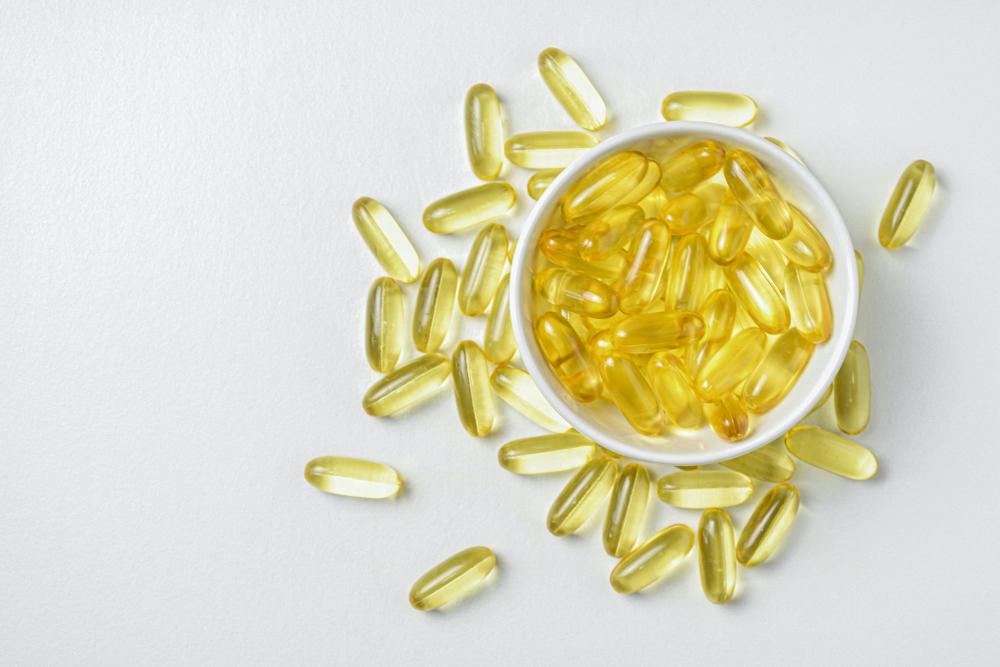Stress Awareness Month: Supplements to help reduce stress
April gives us a moment to acknowledge stress and focus on caring for ourselves. Plus, if you’re able, maybe extend a hand to someone struggling, too.
Practical solutions include meditating, reducing social media, increasing daily exercise and taking supplements to improve health.
On the supplement side, there are several options available. The most obvious is a multi-vitamin to cover different angles. These can support your overall health but might not give you enough lift to reduce stress.
Focusing on one, two, or three supplements is the way to go, as you can focus on proven stress reducers and skip the vitamins and minerals that won’t help.
These supplements help keep your mind sharp when stress threatens to dull it:
Vitamin B12
When stress hits, your B12 stores take a nosedive – leaving your brain in a fog when you need clarity most. This vitamin quietly works behind the scenes, helping craft the chemicals that keep your spirits up and your nerves talking to each other.
Looking for support? B12 supplements come as solo acts or with the entire B vitamin crew. Both have their place in your wellness toolkit – it depends on what your unique system needs to stay resilient when life throws its curveballs.
Vitamin B6
Mood swings become pronounced when stress lingers. B6 helps manufacture several mood-regulating brain chemicals, without which emotional stability suffers.
Women often benefit most from B6 during hormonal fluctuations that compound stress. Morning doses work best with food.
Related: Unwind Naturally – Supplements to help you destress and relax
Unlike many supplements, results appear relatively quickly – often within weeks rather than months. Look for P-5-P on labels for the most bioavailable form.
Vitamin C
Stress rapidly depletes your vitamin C reserves, and you'll notice the mental slowdown as levels fall. Unlike most nutrients, humans can't synthesise vitamin C internally.
External factors like smoking and pollution can increase your body's demand for vitamin C. Your system absorbs vitamin C better in smaller, repeated amounts rather than one big dose.
The benefits appear remarkably quickly - often just days after addressing a deficiency. While fresh food sources offer superior bioavailability compared to most supplements, tablets provide a practical solution for busy lives.
Magnesium
Sleep vanishes during stress. Thoughts race. Muscles tighten. Magnesium steps in when tension takes hold, helping quiet the mental storm many face during difficult weeks.
Magnesium regulates glutamate, a neurotransmitter that makes thoughts race during stress and can lead to anxiety and depression.
Take it before bed rather than in the morning. Users report better sleep quality and reduced overthinking. Pair it with a warm bath for the best results.
Zinc
Decision-making falters during stress. Zinc keeps cognitive wheels turning even when pressure mounts. Most diets lack sufficient zinc despite its critical role in brain function.
Athletes and heavy sweaters lose zinc rapidly, compounding stress's effects on thinking. Morning supplementation works best alongside vitamin C foods.
Taste changes sometimes signal deficiency long before brain fog sets in — worth noting if foods suddenly seem bland.
DHA
Brain cell membranes need constant repair, and stress accelerates degradation, hampering rebuilding efforts. DHA (docosahexaenoic acid) is a premium building material for neural maintenance crews. DHA can be found in Fish and Omega 3-6-9 supplements.
Related: The best supplements for increased energy
Iron
When iron runs low, your mind fogs up, and stress speeds up the drain. For women, monthly cycles chip away at reserves, leaving less in the tank when pressure 5700002mounts.
Want that morning iron boost? Skip the coffee date - your supplement and caffeine don't mix well. Plant-based iron? Grab some vitamin C to help it find its way home.
The good news? Unlike some nutritional shortfalls, the fog lifts when you refill your iron stores. Give it a few weeks, and you'll feel the difference.
Folate
Rumination — getting stuck in thought loops — worsens during stress periods. Folate helps maintain mental flexibility when problems demand creative solutions.
Heat destroys folate in foods, making supplements valuable even with good diets. Methylfolate forms work better than folic acid for most people under pressure. Pairing with B12 creates synergistic benefits beyond either alone.
Calcium
When stress lingers, your nerves start sending garbled messages. Calcium steps in as the communication repair team, keeping brain signals clear even when you're overwhelmed.
Your yoghurt, almond milk, or those little fish with bones deliver calcium daily, but stress makes it harder for your body to use what you eat. Taking supplements at night works better for most and dividing your dose can help your body absorb more effectively.
Iodine
Stress that persists too long slows your metabolism, leaving your thoughts murky and your body dragging. Iodine keeps your thyroid firing correctly — the master switch for your mental energy.
Most packaged foods leave you empty when it comes to this crucial mineral. Beyond pills, the ocean offers natural sources packed with what you need. But tread carefully – too much iodine backfires just like too little. Adults need a daily dose of 140 μg (micrograms).
Summing up
Stress Awareness Month hands you a perfect excuse to tackle tension. While supplements won't fix everything, they can give your brain the materials to fight back when stress strikes.
Start with just two or three from this list that match your symptoms. Pair them with real-world changes like ditching your phone before bed and discussing what's crushing you.
The right supplements strengthen your defences from within, while these small habit shifts disrupt stress before it takes hold.
Good luck!
Further reading: Supplements to improve your body’s nutrition











